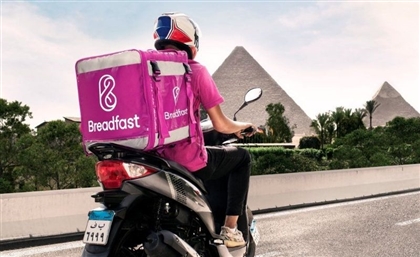This Fin-Tech Startup Is Aiming to Make Tunisia Cashless
Staff Writer Ahmed Budalama speaks to Rostom Bouazizi, co-founder and COO of Flouci and Kaoun.

Kaoun is the first startup in Tunisia to allow for legally recognised remote identification, which customers can use to perform seamless mobile peer-to-peer (P2P) merchandising, e-commerce and bill payments.
Flouci’s electronic Know Your Customer (eKYC) process brings financial services directly to customers by breaking the barriers to entry that resulted in their financial exclusion, such as distance and cost. Customers can open a bank account remotely by submitting pictures of their Tunisian national ID from their phones, then recording a brief video of themselves. Flouci's machine vision software verifies the authenticity of the ID, runs facial recognition algorithms on the video and ID card, then submits a match confidence score to the back office for final approval from a bank staff member.
Moreover, the eKYC process implements a range of computer vision algorithms to check the authenticity of a submitted national ID in real-time and detect any anomalies to alert the bank compliance team about potential document fraud. The facial recognition mechanism allows to compare the video frames and the ID submitted to generate a confidence score with an interpretation that can be overwritten by the agent. The process also enables the proof of life by detecting that the person is doing the process at the time of the application through simple randomized instructions.
“Our goal is really to use the power of innovative technologies to automate most of the manual processes at the bank level as well as increase efficiency. This results naturally in a service that is more reliable, fast and secure,” adds Bouazizi.
After Bouazizi and two of his colleagues gained their higher education certificates at a private university in the United States, they were fascinated by the easy with which an individual could open a bank account, as well as the quality and affordability of available transactional banking-based services. This signaled the birth of Flouci, which came from the simple observation about the quality and scalability of financial services in Tunisia, and notably the significant room for improvement in the Tunisian financial services industry. A further study of the opportunity revealed how the legacy systems of Tunisian banks, as well as the overly complex regulatory environment, were resulting in the exclusion of millions of individuals from the formal financial system.
Bouazizi went on to establish Kaoun and launch Flouci, Kaoun’s first product that paves the way to financial inclusion in Tunisia, by allowing users to open a bank account and have access to banking services remotely using their electronic Know Your Customer (KYC) process.
“We then made it our mission to bank the 5.5 million unbanked adults in Tunisia as well as provide more reliable and affordable services to the already banked,” said Bouazizi.
As a startup, Kaoun employs many modern-day technological tactics in their continious effort to disrupt the tech ecosystem. Kaoun processes interbank payments using blockchain technology, which allows them to ensure that all transactions are securely and conveniently completed within four seconds. Additionally, by documenting and formalising users’ day-to-day transactions, Kaoun is also able to acquire the necessary data to create alternative credit scores, allowing even informally employed customers to prove credit-worthiness and avoid the need for exploitative loans. Through Kaoun’s partnership with the National Agency of Electronic Certification (ANCE), Flouci also offers digital signatures to every user of the app, which can be used to sign legally binding documents.
Customers use their phones to select which of our partner banks to open an account with. This technology allows banks to reach a bigger market and make procedures that can be currently done only through paperwork and physical presence automated or semi-automated. Blockchain allows the integrity of operations since it is based on a consensus protocol, where nodes vote on the valid and accepted transactions, eliminating fraud and conflictual transactions. Flouci’s interoperable payments product is built using a private blockchain with a consensus protocol for settlement, a chosen method over the traditional centralized ledger-based system because blockchain mitigates the risk of double-counting when transaction. It also allows the startup’s services to be interoperable across all banks while respecting all current laws regarding the protection of personal data, and anti-money laundering in Tunisia and the region.
However, certain processes are known to hinder the process of a startup’s growth, but Flouci had worked in the last 18 months since their launch to forge strong relationships with both the banking and public sectors and prove the quality of their product. Partners are becoming more willing to accelerate their internal processes and align their mission with Flouci. Additionally, Flouci offers banks a competitive advantage in allowing customers to open accounts remotely-banks are therefore encouraged to adapt technically quickly to access this service.
“Our product launch has been slowed by the long administrative processes of partner banks and government ministries. There are high barriers to entry in the sector, which are particularly significant for non-traditional players trying to disrupt the market. While we as a startup depend on our ability to adapt and pivot quickly when necessary, most of our partner institutions are accustomed to more time-consuming processes and are reluctant to change,” explains Bouazizi.
Kaoun has received funding from USAID, Columbia Business School Tamer Center for Social Enterprise as well as two angel investors who stood behind their vision and shown their support throughout the journey. The startup’s research revealed that many of the problems that are hindering financial inclusion in Tunisian- an which we are trying to solve with our solution Flouci- are also relevant in many neighboring and similarly sized market across the MENA region, which is why, in the next 3 years, they plan to integrate with all 23 commercial banks in Tunisia, allowing for a multi-efficient payments solution.
Additionally, Flouci hopes to have started expansion to other countries in the Middle East and Northern African region, notably Algeria, Morocco, and Turkey by the company’s fifth year. Flouci’s services make it easy for small businesses, online businesses and entrepreneurs to accept payments seamlessly and at very affordable rates, as well as helping them focus more on their core businesses and less on cash handling, and collection, hence not only expanding existing markets but also creating new ones by getting their products closer to a more and more tech-savvy clientele.
“The success of the project could also result in creating a Fintech ecosystem in which we could collaborate with existing and emerging players to enhance our offering and move closer towards achieving our mission of promoting financial inclusion,” concludes Bouazizi.
- Previous Article 6 Signs your Startup Could Be Among the 90% that Fail
- Next Article Meet Tamatem, Jordan’s Leading Mobile Game Publishing Studio




















